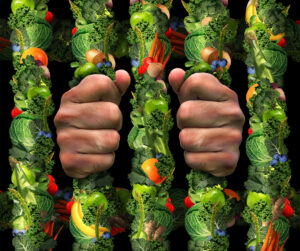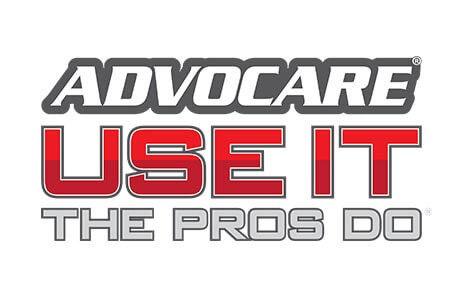 What is Orthorexia?
What is Orthorexia?
Orthorexia is a type of eating disorder that seems almost acceptable to the person who has it and the people around them because it is about “healthy” eating. That sounds a little hard to believe doesn’t it, that wanting to be healthy and therefore focusing on eating healthy could actually be an “unhealthy” thing for some? Orthorexia nervosa is an obsession with healthy eating that can be so restrictive that it gets in the way of relationships, quality of life and can even lead to malnutrition.
After completing my first Module at the Institute for the psychology of eating, I have found a small window of time to write, and thought I would share some insights from what I am learning on this journey. This information was not directly from my studies for school, but I stumbled upon it in a podcast “The dark side of eating” with Marc David founder of the Institute for the psychology of eating, and was intrigued, so I did a deeper dive.
What is your relationship with food like…..really?
When interviewing to get accepted into the institute I was asked many questions, including some about my relationship with food and body. My initial thoughts were that I have been fortunate to have a pretty healthy relationship with food, and understanding that most people (especially women) have some sort of dislike for some part, and sometimes many parts of their body, I felt pretty “normal” there too.
After 5 weeks of course study my eyes are opened to the fact that what I consider a healthy relationship with food and body may not really be. This article however will focus on the relationship with food.
There are many types of “eating disorders” and there are just as many ways to have disordered eating. Many can ignore or maybe hide certain types of both an eating disorder and disordered eating because there may not be obvious physical evidence of the disorder.
Seasons in life
life seasons may send us in a direction for a period of time, like sometimes we have an illness that requires a certain type of eating to help us heal or maintain health. For example when I was pregnant, I had Gestational diabetes. During my pregnancy I needed to follow a diet meant for diabetics and take insulin when needed. That was a temporary situation which was resolved after giving birth.
Another season might be an athlete training for competition. They will need to fuel their body for ultimate performance and eat a diet that has a lower inflammatory response for recovery. In this season they may seem obsessive because every little thing matters in their performance. When in training for marathons I ate more carbohydrates but when I was training for figure competitions I took my protein up, and carb cycled.
Maybe you have an upcoming surgery and are told to limit certain supplements or certain types of foods pre-surgery to lower the risk of bleeding or infection. All of these so called diets are understandable and temporary. Even deciding that the 5 lbs you put on over the holidays need to come off before they turn into 10 next year, makes sense and can be temporary.
When the temporary turns permanent in your mind, and eating what you consider to be “healthy” all the time with no exception is the norm, then you may want to step back and look at what is really fueling that decision. The preoccupation with food, eating and health is where you may see a red flag.
We all want to be healthy
There is nothing inherently wrong with wanting to be the healthiest version of yourself! There is, however more than one component to health. The physical is not all there is to it. Emotional health is hugely important and your self esteem, self confidence, self acceptance is all tied to being emotional healthy.
Eating a healthy diet is great and we would all love to be healthy all of the time! No pain, no illness, perfect body forever and ever…….. The problem with that way of thinking is that it doesn’t happen. There is no perfect way to eat, there is no perfect body, and at some point we will all get sick and we will all die of something someday. So what is driving the obsession to be, and eat healthy? That is not for me to say to those who have adopted this way of thinking, but I would say it is up to you to “check yourself”, and that is what I did, and will continue to do, check myself!
Let’s look at the signs that may indicate that what may have started out as a quest for health, might have turned obsessive. Do any of these ring true for you? If so, maybe it is time to relax a little, cut yourself some slack and learn to let go of perfection (since there is really no such thing) and enjoy new foods and experiences you have been missing out on. Your health will not fail because of the things you do sometimes, It is more about what you do most of the time.
Some Orthorexia symptoms:
Worry about quality of food
Eliminating whole food groups by deeming them “bad”
Avoiding going out, or foods prepared by others for fear they won’t meet your quality standards
Fear of sickness
Fear of loss of control, ie, if you eat something you deem “bad” you may not stop
Signs of malnourishment, dull skin, unhealthy nails and hair, weight loss and or muscle loss
Spending a lot of time researching foods and meal planning based on the quality or health-fullness of food
Being judgemental or critical of food choices of friends and family
Being preoccupied with food and having guilt if you step out of your regime
If any of these resonate with you, you may want to take this test so you can get a little deeper.
Who is at risk for Orthorexia?
If you have ever had another eating disorder, you may be at risk for orthorexia nervosa. After recovering from an eating disorder like anorexia nervosa or bulimia, some may feel that they are just wanting to be healthy. The problem arises anytime we become obsessed with one way of being or eating, or limiting whole food groups from our diet because we decided they are “bad”.
Some with obsessive compulsive or anxiety disorder may also find themselves with Orthorexia because similarly you can feel in control when controlling your diet which can temporarily ease anxiety.
If you have body dysmorphia or an unhealthy view of your shape or weight you may be at risk for Orthorexia. An obsession with the number on the scale might send you down the path of “good foods” vs “bad foods”, which may lead to restrictive dieting and Orthorexia.
What’s the big deal?
It may not seem like that big of a deal, being obsessed with healthy foods and eating, but it can cause some big problems in life.
Mental health is a big part of this, people with Orthorexia often feel depressed because it is so difficult to uphold their own standards. Say they have determined that meat is bad but crave a burger, they may feel bad about themselves but what if they cave to the craving and eat the burger? The punishment and abuse to themselves can be devastating! The inability to participate in certain functions can also lead to withdraw and depression.
Some sufferers of Orthorexia punish eating “bad foods” with over exercising, which is a another disorder that can have awful long term side effects.
Relationships and quality of life can struggle because of this disorder. Going anywhere may be stressful, dinners out, parties or even trying to travel.
Orthorexia can be as complex as other eating disorders or as simple as redirecting your energy into finding balance, but it is real, and with social media influences and the pursuit of perfection it is rapidly growing! There is so much on Instagram, facebook, tik tok etc. about “clean eating” and avoiding non organic foods and pesticides, and to an extent this is all good information, but it can send some of us spiraling out of control and feeling “less than” if we don’t uphold this standard of eating 100% of the time.
My personal results
After reflecting on my own thought processes I can see where I have some work to do, however I have determined I do not have Orthorexia.
I do recognize that it could be possible with my history and being in the industry that I am in. (which is also a risk factor). I have been on many diets and eating plans for different reasons throughout my life, most recently just because I like to experiment with food and how it makes me feel. I am an intermittent faster and I sometimes get very hungry and even weak before it’s actually “time to eat”. After researching for this article I realize that when I am hungry, it IS TIME TO EAT! How silly am I to let myself get weak in order to follow some arbitrary rule?
I have been working on letting go a little of control and it has been fun and alot less stressful! I am still a work in progress, I will continue to lean toward healthful foods because they are better for my body, and I just physically feel better, but when I want an ooey gooey oatmeal cookie, I will eat it, slowly, I will taste it and enjoy it, no guilt, and no extra push-ups because of it! My new goal is balance and I am looking forward to sharing more of what I learn as I continue my studies through June!
- If you or someone you know are showing signs listed above or if you are concerned that you/they are headed that direction, reach out for support! Any qualified eating disorder specialist, counselor, therapist should be able to help! you can also private message me for more information.



